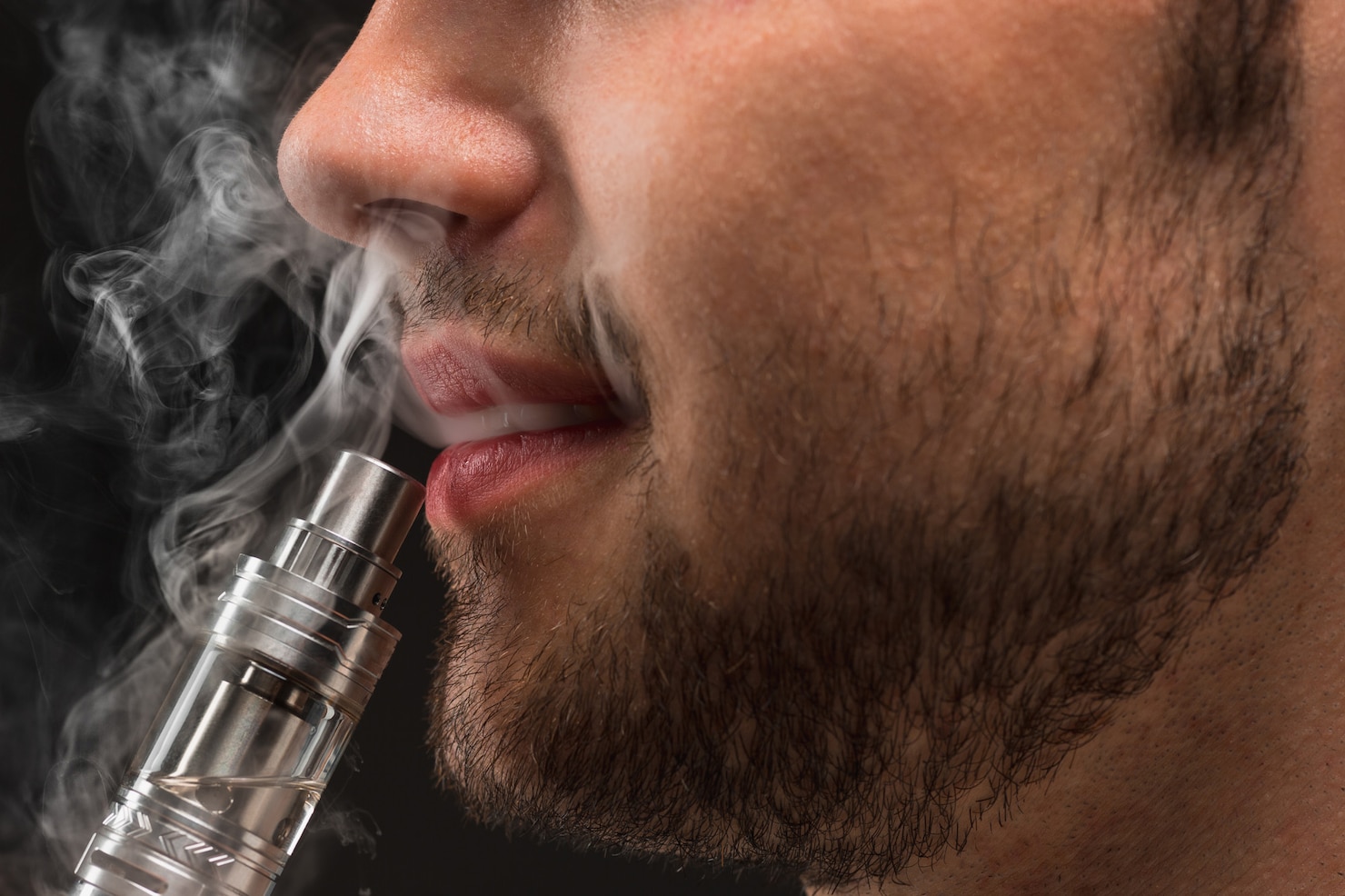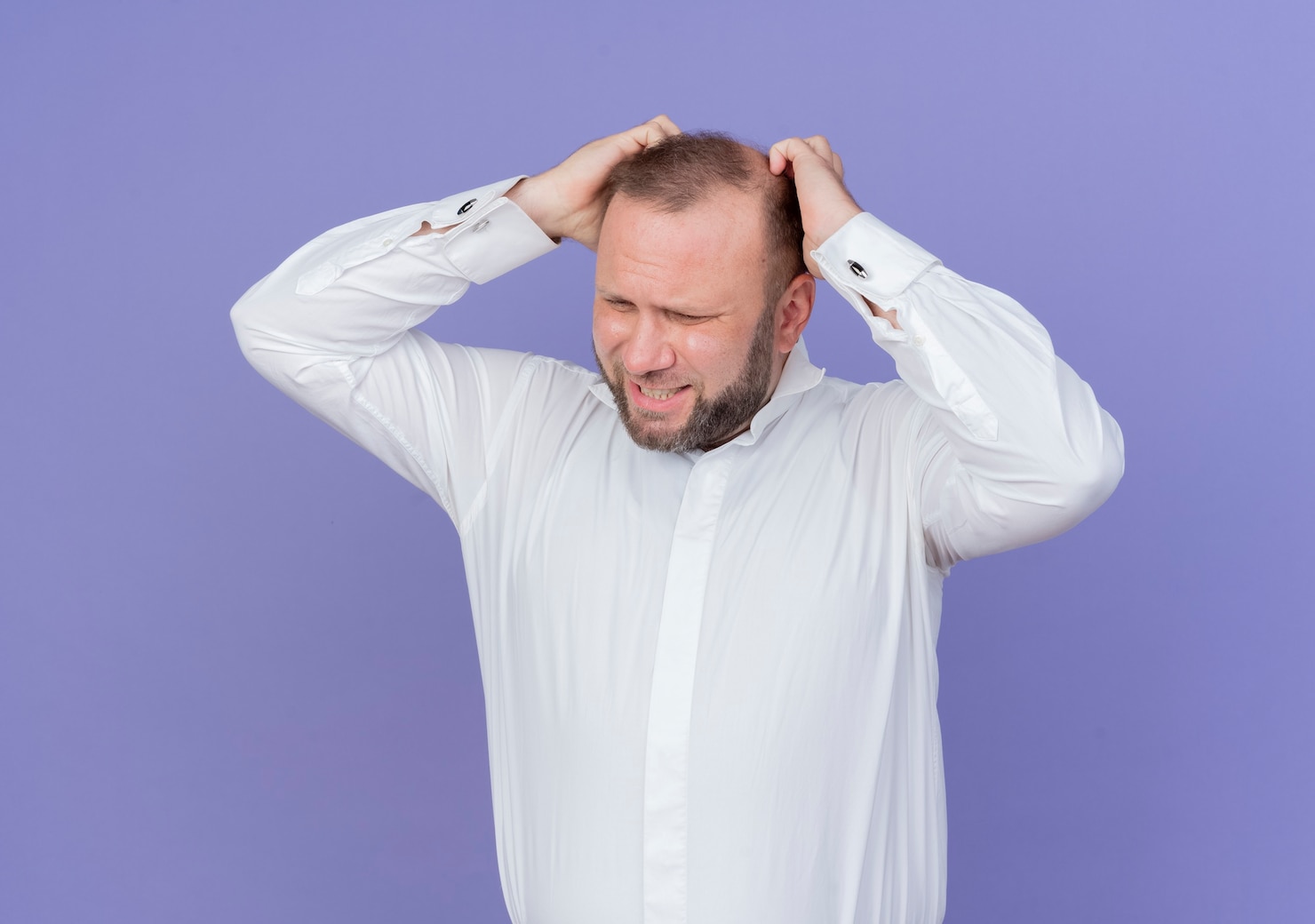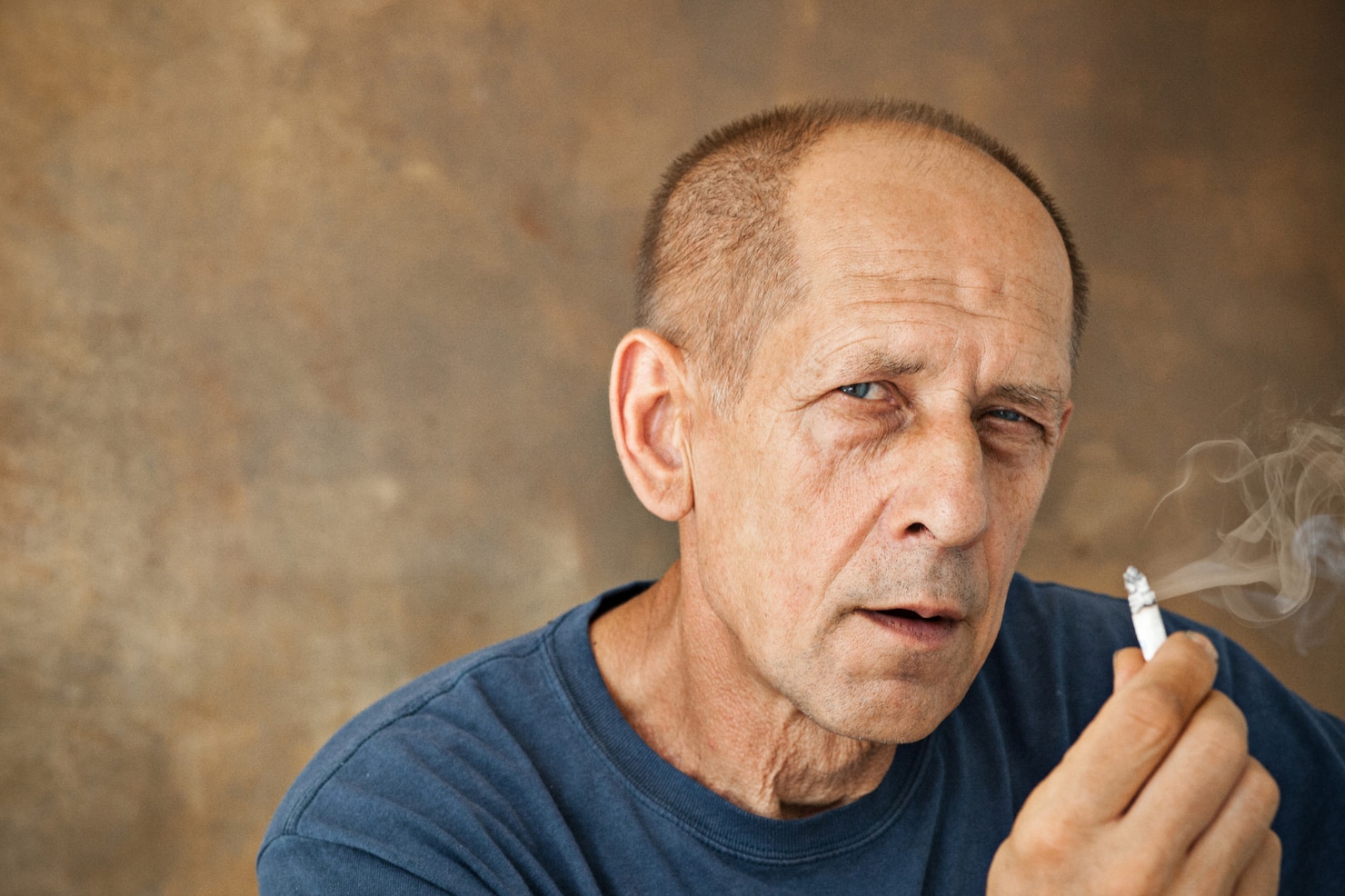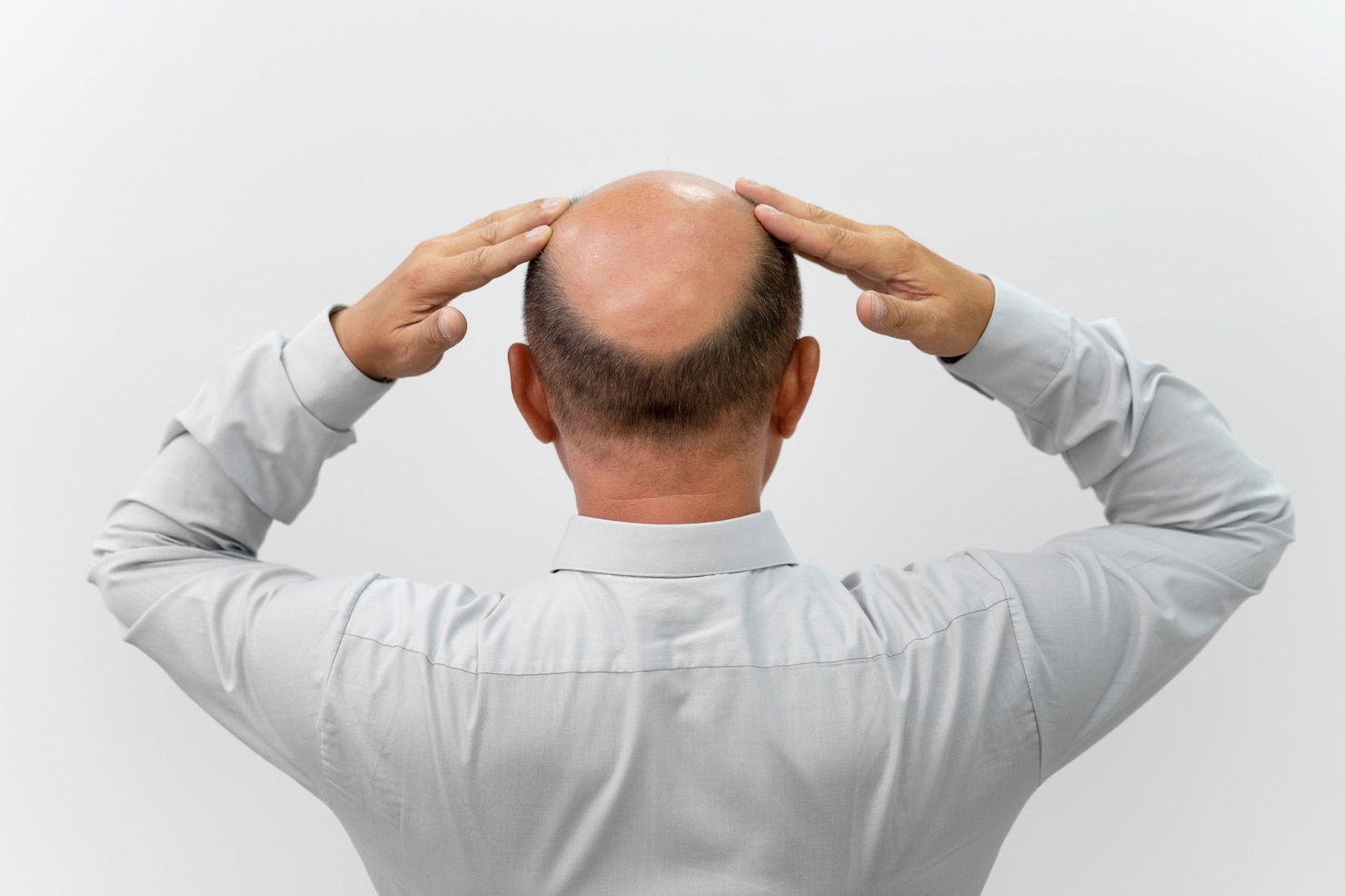
Does vaping cause hair loss? As men, we often prioritize our overall health but may overlook the potential impact of vaping on our hair health. Some think it’s a smoking hair loss myth, while others still don’t know the answer, so they spend hours online looking for answers to “does smoking cause hair loss?” and “can smoking cause hair loss?”
In this article, we will explore the scientific facts and evidence surrounding the relationship between vaping and hair health, shedding light on the effects it can have on our precious locks.
Understanding Vaping and Its Effects

Image Source: FreePik
Explanation of Vaping and Its Popularity Among Men
When it comes to the world of smoking alternatives, vaping has emerged as a prominent contender. This innovative practice involves inhaling and exhaling vapor produced by an electronic cigarette or similar device. While vaping has gained popularity across various demographics, it has particularly struck a chord with men. The allure of vaping lies in its ability to provide a satisfying nicotine fix without the drawbacks associated with traditional smoking.
For many men, vaping offers an enticing alternative to conventional cigarettes, presenting a modern and stylish way to indulge in nicotine consumption. The sleek designs, customizable options, and array of flavors available in the vaping market contribute to its appeal among the male population. It allows them to incorporate vaping into their personal style and make a statement while satisfying their nicotine cravings.
Scientific Evidence Linking Vaping to Various Health Issues
Despite its growing popularity, it is crucial to recognize the potential health risks associated with vaping. Scientific research has highlighted several concerning factors that individuals should consider before embracing this practice. Studies have indicated that vaping can lead to various health issues, raising concerns about its long-term effects on the body.
One significant concern is the impact of vaping on respiratory health. Research suggests that the inhalation of vaping aerosols can lead to lung inflammation, respiratory symptoms, and even lung injury in severe cases. Additionally, the chemicals found in vaping liquids, such as formaldehyde and acrolein, have been linked to potential respiratory damage and oxidative stress.
Moreover, evidence suggests that vaping may have detrimental effects on cardiovascular health. Studies have found that vaping can lead to an increase in heart rate and blood pressure, potentially contributing to cardiovascular problems over time. The presence of harmful substances in e-cigarettes, including heavy metals and volatile organic compounds, further exacerbates these concerns.
While more research is needed to fully understand the long-term effects of vaping, it is crucial for individuals, particularly men, to be aware of the potential risks associated with this practice. Making informed decisions about personal health is paramount, and understanding the scientific evidence can empower individuals to make choices that prioritize their well-being.
Key Takeaway:
Vaping has become a popular choice among men due to its modern appeal and customizable options. However, scientific evidence suggests that vaping is not without risks, with potential health issues associated with respiratory and cardiovascular health. It is essential for individuals, especially men, to be well-informed about the potential drawbacks of vaping and make decisions that prioritize their overall well-being.How Vaping Can Impact Hair Health
Effect of Nicotine on Blood Circulation to Hair Follicles
When it comes to maintaining healthy hair, blood circulation plays a vital role in nourishing the hair follicles and promoting optimal growth. However, the nicotine found in vaping liquids can have a detrimental effect on blood circulation, which in turn can impact the health of your hair. Nicotine has vasoconstrictive properties, meaning it narrows the blood vessels and reduces blood flow to various parts of the body, including the scalp.
Reduced blood circulation to the hair follicles can lead to insufficient nutrient supply, causing the hair to become weaker, brittle, and more prone to breakage. Additionally, inadequate blood flow can hinder the delivery of oxygen and essential nutrients to the hair follicles, hampering their ability to produce healthy hair strands. Over time, this can result in thinning hair and even hair loss.
Role of Oxidative Stress in Hair Damage Caused by Vaping
Another concerning aspect of vaping and its impact on hair health lies in the role of oxidative stress. Vaping releases free radicals and other harmful substances into the body, which can trigger oxidative stress. Oxidative stress occurs when there is an imbalance between the production of free radicals and the body's ability to neutralize them with antioxidants.
Hair follicles are particularly vulnerable to oxidative stress due to their high metabolic activity and exposure to external environmental factors. When oxidative stress overwhelms the body's antioxidant defenses, it can lead to hair damage and premature aging of the hair. This can manifest as dryness, dullness, and increased hair breakage.
Key Takeaway:
Vaping can have detrimental effects on hair health. Nicotine in vaping liquids can impede blood circulation to the hair follicles, leading to weakened and brittle hair. Additionally, the oxidative stress triggered by vaping can result in hair damage and premature aging.Ways Vaping Affects Hair Health
Reduced blood flow and nutrient supply to the hair follicles
When it comes to hair health, one of the detrimental effects of vaping is the reduced blood flow and nutrient supply to the hair follicles. Just like a river nourishes the surrounding land, a healthy blood supply is essential for the hair follicles to thrive. However, the chemicals present in vape liquids can constrict blood vessels, impeding the proper circulation of blood to the scalp.
With compromised blood flow, the hair follicles receive fewer essential nutrients and oxygen necessary for their growth and maintenance. This deficiency can lead to weakened hair follicles, resulting in hair that appears dull, brittle, and lacking vitality. Furthermore, restricted blood flow can hinder the delivery of vital nutrients for hair growth, such as biotin and keratin, stunting the overall health and quality of your locks.
Increased production of free radicals leading to hair damage
Another way vaping negatively impacts hair health is through the increased production of free radicals. Vape liquids contain various chemicals, such as formaldehyde and acrolein, which can generate an excess of free radicals in the body. These unstable molecules wreak havoc on the hair follicles, causing oxidative stress and damage.
The abundance of free radicals can disrupt the natural balance of antioxidants and lead to a cascade of negative effects on hair health. It can weaken the hair strands, making them prone to breakage, and contribute to premature hair aging.
Additionally, oxidative stress caused by free radicals can disrupt the hair growth cycle, leading to thinning and hair loss over time.
Imbalanced hormone levels and potential impact on the hair growth cycle
Vaping can also disrupt hormone levels, potentially influencing the hair growth cycle. The chemicals found in vape liquids, such as nicotine, can interfere with the delicate balance of hormones in the body. Hormones play a vital role in regulating hair growth, and any disruption to this delicate equilibrium can have significant consequences.
Imbalanced hormone levels can result in a shortened anagen phase, which is the active growth phase of the hair follicles. This can lead to reduced hair thickness and density, as well as slower overall hair growth. Additionally, hormonal fluctuations can trigger conditions like androgenetic alopecia, a form of hair loss characterized by a receding hairline and a thinning crown.
In summary, vaping can have detrimental effects on hair health through various mechanisms. It reduces blood flow and nutrient supply to the hair follicles, increases the production of damaging free radicals, and disrupts hormone levels, potentially affecting the hair growth cycle.
Key Takeaway:
Vaping negatively impacts hair health by compromising blood flow and nutrient supply, increasing the production of damaging free radicals, and disturbing hormone levels. These effects can lead to weakened hair follicles, hair damage, and disruptions in the hair growth cycle.Men's Hair Care Practices to Counter Vaping Effects

Image Source: FreePik
Adopting a healthy lifestyle and quitting vaping
To counter the negative effects of vaping on your hair, it is essential to adopt a healthy lifestyle and, most importantly, quit vaping altogether. By eliminating vaping from your routine, you allow your body to begin the healing process and recover from the damage caused by the harmful chemicals present in vape liquids.
Quitting vaping is not an easy feat, but with determination and support, you can take control of your hair health. Seek guidance from healthcare professionals or support groups to aid you in your journey towards a vape-free life. By making this crucial change, you not only improve your hair's condition but also enhance your overall well-being.
Incorporating proper hair care routines to promote hair health
In addition to quitting vaping, adopting a proper hair care routine can significantly counter its effects on your hair. Start by choosing gentle, sulfate-free shampoos and conditioners that nourish and hydrate your hair. Look for products that contain ingredients like biotin, keratin, and essential oils, as these can help strengthen and revitalize your hair follicles.
Regularly moisturize your scalp and hair with natural oils, such as coconut or argan oil, to provide essential nutrients and hydration. Gentle scalp massages can also stimulate blood flow and promote healthy hair growth. Remember to protect your hair from heat damage by using heat protectant sprays before styling with hot tools.
Maintaining a balanced diet rich in vitamins, minerals, and proteins is crucial for hair health. Include foods like leafy greens, fruits, lean meats, and nuts in your meals to provide the necessary nutrients for optimal hair growth and strength. Stay hydrated by drinking an adequate amount of water daily, as hydration is vital for healthy hair.
Key Takeaway:
To counter the effects of vaping on your hair, adopt a healthy lifestyle by quitting vaping and incorporating proper hair care routines. Quitting vaping allows your body to heal, while a proper hair care routine involves using gentle products, moisturizing your hair and scalp, and maintaining a balanced diet for optimal hair health.Conclusion
The impact of vaping on men's hair health should not be overlooked. Scientific evidence suggests that vaping can have detrimental effects on hair health, including reduced blood flow and nutrient supply to the hair follicles, increased production of free radicals leading to hair damage, and potential disruption of hormone levels and the hair growth cycle. It is crucial for individuals, especially men, to be well-informed about these risks and make decisions that prioritize their overall well-being.




